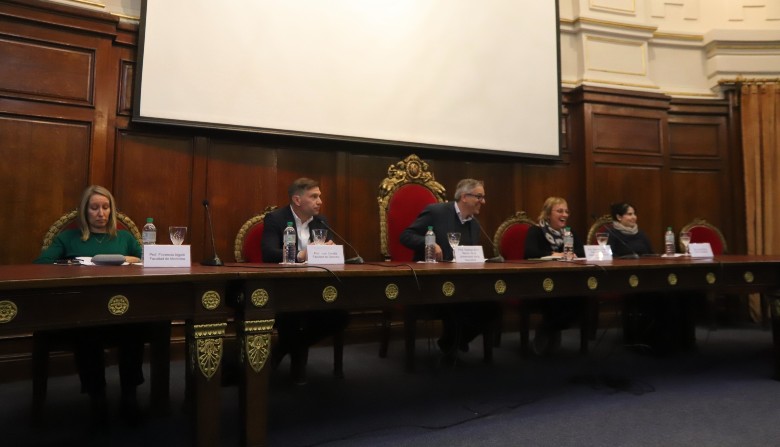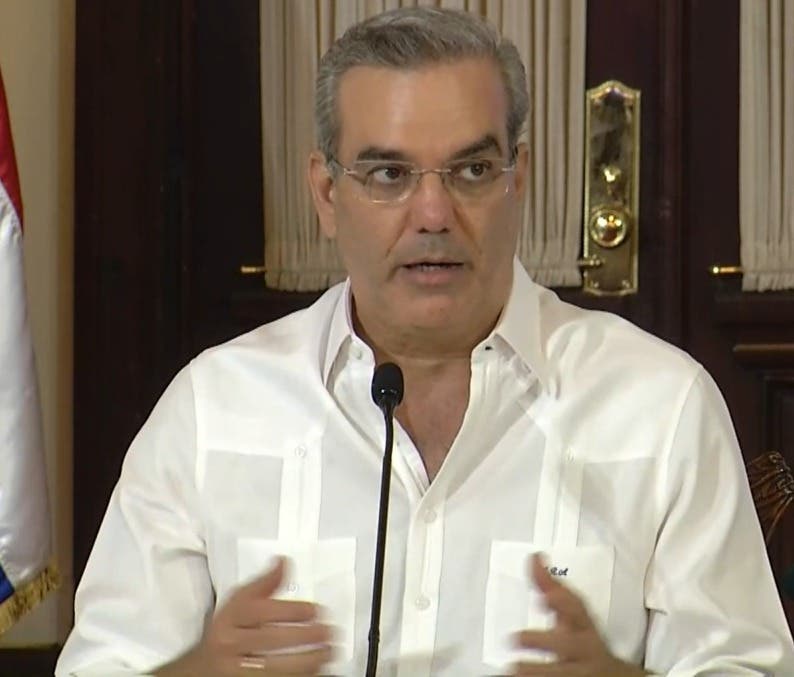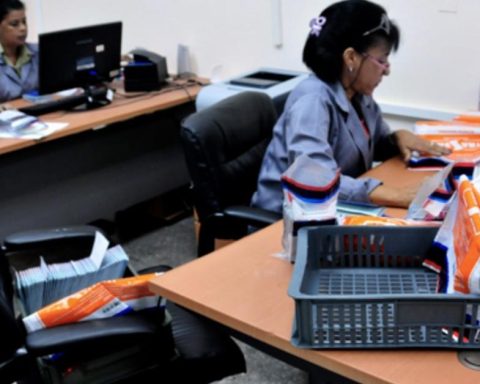This Wednesday, the General Assembly of the Senate (AGC) of the university was held in the auditorium of the University of the Republic (Udelar) to give a conference calling for the 0 increase for the university budget, foreseen in the proposal of Rendering of Accounts presented by the Executive Power.
The AGC is the central governing, voting and advisory body of Udelar and is made up of the three orders of the co-government of the university: teachers, graduates and students. The event was attended by the president of the Assembly, the teacher Alejandra López, the rector of Udelar, Rodrigo Arim, the professor of the Faculty of Law, Juan Ceretta, the biologist graduated from Udelar and professor of the Faculty of Sciences, Gonzalo Moratorio, the professor at the Faculty of Medicine, Florencia Irigoín and the student at the Faculty of Arts, Lucía Padula. Outside the building, hundreds of students mobilized
The “unrequited” role of Udelar
López highlighted the mobilization of the university community at the national level to express its concern “for the setback that means that the main public university in the country is weakened by not having the necessary resources to carry out” its work with quality.
“The Udelar renders an account before the citizens, because this is the recipient of their contributions and because they will be the main affected if their capacities are undermined,” said the professor of the Faculty of Psychology.
In this sense, the president of the AGC referred to the role of Udelar during the pandemic where “it made available knowledge, human and financial resources, infrastructure and equipment to contribute to the pandemic. However, this contribution has not yet had a correlation in the budget allocation of the Executive Branch and deputies.
López indicated that, compared to 2018, this year there are almost 14 thousand more students. “However, the relationship between the number of teachers and active students is the most deficient there is”, the same with respect to technical and administrative officials (TAS), he warned.
“We urge the Senate to recognize the exclusive contribution that our university makes to the present and future of the country. This recognition must be translated into concrete measures that meet the budget requested and justified by Udelar”, he concluded.
It doesn’t affect the now, it affects the future
Subsequently, the rector Arim intervened, who this Wednesday appeared before the Finance Commission of the Senate Chamber to present his accounts and request a budget (see separate note).
The rector began his speech emphasizing that the request for resources is not for something short-term, but is part of the future projection.
“30 years ago Uruguay was far from advancing towards the generalization of tertiary and higher education, today we have a gross enrollment rate close to 100%. This speaks of the social perspectives and hopes that there are about the Udelar. It also indicates that Uruguay is advancing”, reviewed the rector.
Then, the academic chief reviewed the statistics that show the increase in admission and graduation of students both at the undergraduate and postgraduate levels, in Montevideo and the interior of the country, and the investment in human capital necessary to respond to that increase. .
Arim argued that in the university “losses are not general abstractions, they are concrete realities. Attending to 5000 more income per year with the same teaching hours is not innocuous, it affects our capacities. We need resources that cannot be postponed, the logic of ‘we don’t attend today what we will attend to tomorrow’ is not applicable in university life’. Today’s students will pay the costs of not having a budget.”
“It is a contradiction that, when resources are most needed to care for the student population that has been injured by the pandemic, the country invests less,” added the rector.
“A 0 budget does not mean pausing or stopping the pace, it means objective and tangible losses, not for the university, but for the population,” he assured.
Arim acknowledged that in the legislative sphere they were receptive to the needs and requests of the university, but regretted that funds have not yet been provided to attend to them. “We hope that Parliament at the level of the Senate is able to show signs that it values what has been done and what Udelar can contribute to the future of the country,” he concluded.
The “heart” of scientific research
For her part, Irigoín, as a researcher, highlighted the role of the university in the country’s science and technology system and the impact it would receive if there were no budget increase. “The university is the heart of the country’s scientific and technological system,” she said.
The teacher emphasized that Udelar is the only one that does research in all areas of knowledge and, in some cases, the only one that does research in those areas. In addition, she highlighted that 71% of the researchers who belong to the system of researchers are from Udelar and that 80% of the scientific publications are given within this house of studies.
“The university is the country”
Ceretta, meanwhile, pointed out that cutting resources is a way of cutting autonomy. Likewise, she referred to the impact that the budget restriction has on all extension projects that link the university with society, from the largest to the smallest. In line with this, he referred, for example, to the legal clinic that he is part of.
“Today we must build a university at the service of the country’s development and that needs us all united. The university is the country, and the resources that are put into it, are put into the country for everyone”, closed the lawyer.


















